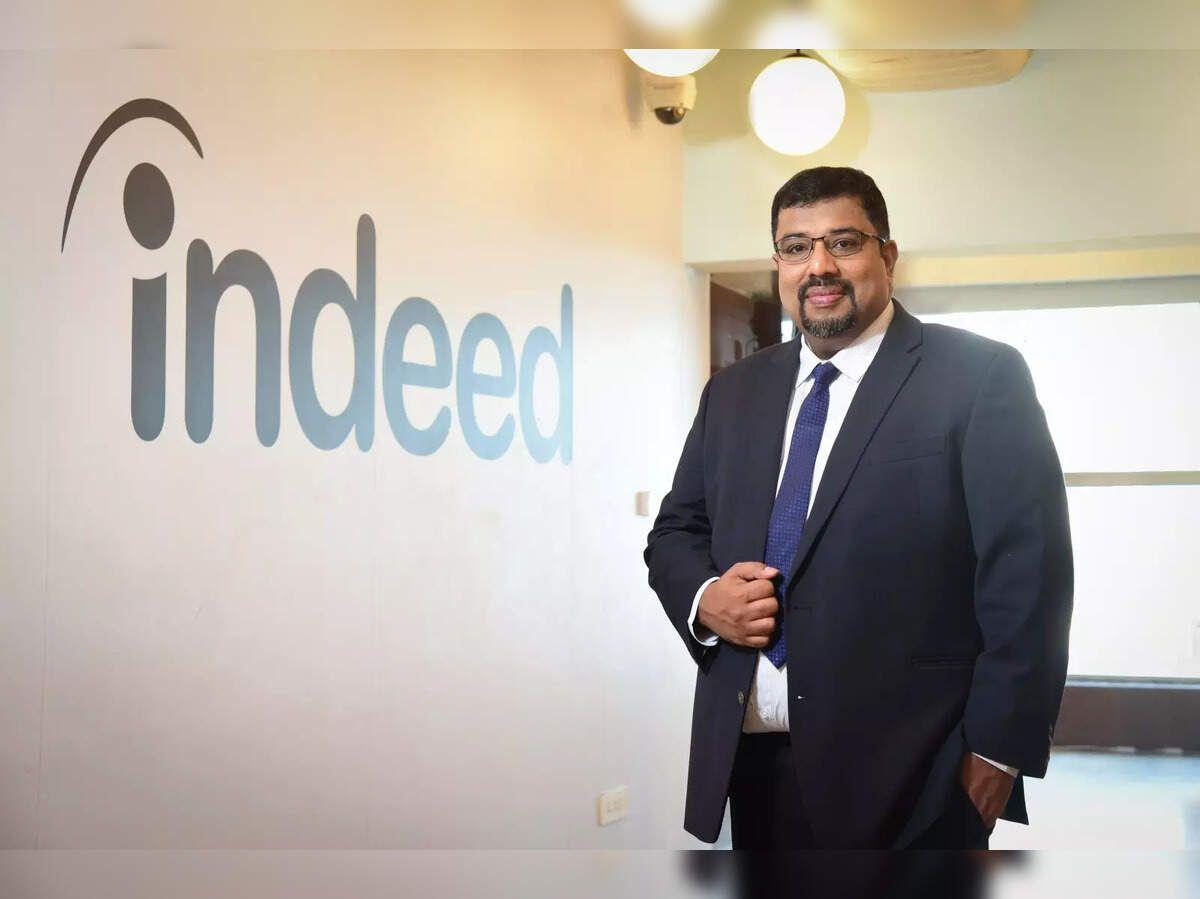LinkedIn Executive Predicts AI Will Usher in 'Innovation Economy', Emphasizing Human Skills
2 Sources
2 Sources
[1]
It'll be human innovation, not technical advancement, fuelling growth of the future: LinkedIn executive
Raman stated that he strongly believes AI should be seen as a tool to achieve the goal of a more human work, focused on "our unique ability to innovate. He warned businesses not to focus only on AI for efficiency and productivity, as they may overlook the true value it offers through innovation.It is human innovation rather than technological progress that will drive future growth, LinkedIn chief economic opportunity officer Aneesh Raman said as he underscored the importance of prioritising the development of human capabilities, particularly soft skills. Talking to PTI, Raman said he firmly believes that AI should be viewed as a means to an end, with that end being "more human work which centres around our unique ability to innovate." He cautioned businesses against solely focusing on AI for efficiency and productivity gains, stating that they risk missing the "actual value that AI can bring, which is through innovation." "Electricity started as an idea. Computing started as an idea. Generative AI started as an idea. It's human innovation, not technical advancement, that fuelled the growth of the past. It will be, more than ever before, human innovation, not technical advancement, that fuels the growth of the future," he said. The real challenge as we enter this innovation economy isn't about AI adoption. That will keep rising as the tools keep getting better and show increased value to employees, he said. "The real challenge is unlocking human innovation at levels we've never seen before. The world of work that we live in right now makes it exceptionally hard for humans to innovate, for anyone from anywhere with a great idea to see that idea through. Because the systems that surround humans at work--employment, education, entrepreneurship--we know they've historically privileged pedigree over potential," Raman noted. Raman highlighted a significant shift in the skills landscape. While physical and intellectual labour has historically dominated the work environment, he argued that generative AI is poised to automate much of the latter. This necessitates a renewed focus on uniquely human capabilities, particularly social abilities, which he termed the "new hard skills." Soft skills are the new hard skills, he said and listed the 5 Cs: communication, creativity, compassion, courage, and curiosity--all of which are becoming increasingly central to hiring decisions. "If you're a business or a business leader or an individual who thinks AI is here to replace humans, you're missing this moment of opportunity. "Everyone who is human has the ability to get better at human skills. And alongside really getting curious about AI, now is the time to work on those people skills," Raman said. He noted a growing skills mismatch in the job market, with recruiters receiving more applications but struggling to find candidates possessing the necessary people skills. The Harvard pass out lauded India's proactive approach to AI adoption and upskilling, stating that the country is "always leading from the front." This includes not only developing hard technical AI skills but also cultivating AI literacy and the ability to effectively prompt AI tools. He emphasised the importance of curiosity as a driving force for individuals navigating this technological shift. He pointed out that India is above the global average in AI adoption, further stating that communication, not coding, is now the number one skill demanded across the platform in India. Raman expressed excitement about the potential for AI to unleash a wave of entrepreneurship in India. He highlighted that AI is not only a tool for learning and growth but also empowers individuals to build, prototype, and launch businesses with unprecedented ease. He believes that this entrepreneurial surge will be a significant driver of new growth in the Indian economy. AI can serve as a powerful equalizer in the labour market by shifting the focus from traditional markers of aptitude, such as degrees and job titles, to demonstrable skills, he further said. This shift, he believes, will create a more equitable system where individuals are judged on the merit of their abilities. He cited the work of Karya, an Indian non-profit that is paying rural Indians for their voice data to create tools accessible in their language, as an example of how AI can be used to empower marginalised communities. Raman acknowledged the importance of responsible AI, stressing the need to prevent the technology from perpetuating existing human biases in the world of work. He expressed encouragement at the ongoing cross-sector conversations surrounding responsible AI and the pressure being exerted by companies and consumers. He said it is important to build AI tools that cater to underserved populations, enabling them to participate in the knowledge economy and contribute their unique talents.
[2]
Why a Senior LinkedIn Exec Believes AI Will Spark a Shift to an 'Innovation Economy'
AI's potential to do that, believes Linkedin's chief economic opportunity officer Aneesh Raman, may usher in the world's next major revolution for businesses, societies, and people. Rahman and other experts say that process could prove as transformative as the successive shifts to industrialization and knowledge-based economic models over past centuries and decades. Just as machines -- and more recently robotics -- have taken over manual work from humans, AI is expected to perform more administrative and even intellectual tasks for employees, who can then focus on more productive activities. One likely consequence of those computing capabilities freeing people from doing calculations, research, data entry, and even content organization and composition is that some people will have more time and far greater resources to pursue innovative projects. "The knowledge economy is on the way out, and a new economy is on the way for us humans at work," Raman said as part of CNBC's 2025 Converge leadership event. "I'm calling it the innovation economy... (AI) isn't just another invention. It's a turning point, forcing us to rethink not just what work is, but what it means to be human at work."
Share
Share
Copy Link
Aneesh Raman, LinkedIn's chief economic opportunity officer, argues that AI will drive a shift towards an 'innovation economy', highlighting the importance of human skills and innovation in the future of work.

AI as a Catalyst for the 'Innovation Economy'
Aneesh Raman, LinkedIn's chief economic opportunity officer, has put forth a compelling vision of the future workplace, arguing that artificial intelligence (AI) will usher in what he terms the 'innovation economy'. This shift, he believes, could be as transformative as previous economic revolutions such as industrialization and the knowledge economy
1
2
.The Role of AI in Workplace Evolution
Raman emphasizes that AI should be viewed as a means to an end, with that end being "more human work which centres around our unique ability to innovate." He cautions businesses against focusing solely on AI for efficiency and productivity gains, arguing that they risk missing the "actual value that AI can bring, which is through innovation"
1
.Human Innovation as the Driver of Growth
Despite the rapid advancement of AI, Raman firmly believes that human innovation, not technical advancement, will fuel future growth. He draws parallels with past technological breakthroughs:
"Electricity started as an idea. Computing started as an idea. Generative AI started as an idea. It's human innovation, not technical advancement, that fuelled the growth of the past. It will be, more than ever before, human innovation, not technical advancement, that fuels the growth of the future," Raman stated
1
.The Shift in Skills Landscape
As generative AI is poised to automate much of the intellectual labor traditionally performed by humans, Raman highlights a significant shift in the skills landscape. He argues for a renewed focus on uniquely human capabilities, particularly social abilities, which he terms the "new hard skills"
1
.The '5 Cs' of Human Skills
Raman introduces the concept of the '5 Cs' - communication, creativity, compassion, courage, and curiosity - as increasingly central to hiring decisions. He emphasizes that these soft skills are becoming the new hard skills in the evolving job market
1
.Related Stories
AI as an Equalizer and Entrepreneurship Catalyst
Raman sees AI as a potential equalizer in the labor market, shifting focus from traditional markers of aptitude to demonstrable skills. He expresses excitement about AI's potential to unleash a wave of entrepreneurship, particularly in India, by empowering individuals to build, prototype, and launch businesses with unprecedented ease
1
.Responsible AI Development
While enthusiastic about AI's potential, Raman acknowledges the importance of responsible AI development. He stresses the need to prevent AI from perpetuating existing human biases in the workplace and emphasizes the importance of building AI tools that cater to underserved populations
1
.India's Proactive Approach to AI
Raman lauds India's proactive approach to AI adoption and upskilling, noting that the country is "always leading from the front." He points out that India is above the global average in AI adoption, with communication, not coding, now being the number one skill demanded across the platform in India
1
.As AI continues to reshape the workplace, Raman's insights underscore the need for businesses and individuals to adapt, focusing on uniquely human skills while leveraging AI as a tool for innovation and growth.
References
Summarized by
Navi
Related Stories
AI as Job Shifter: ManpowerGroup's Perspective on the Future of Work
22 Aug 2025•Business and Economy

AI Reshaping Global Workforce: LinkedIn Study Reveals Emerging Job Titles and Skill Priorities
30 Oct 2024•Business and Economy

AI skills now required in 11.7% of tech jobs as hiring patterns shift across industries
15 Dec 2025•Business and Economy

Recent Highlights
1
ByteDance's Seedance 2.0 AI video generator triggers copyright infringement battle with Hollywood
Policy and Regulation

2
Demis Hassabis predicts AGI in 5-8 years, sees new golden era transforming medicine and science
Technology

3
Nvidia and Meta forge massive chip deal as computing power demands reshape AI infrastructure
Technology





